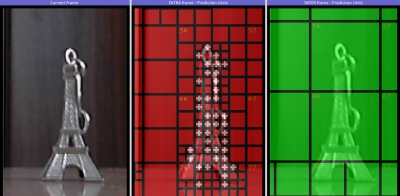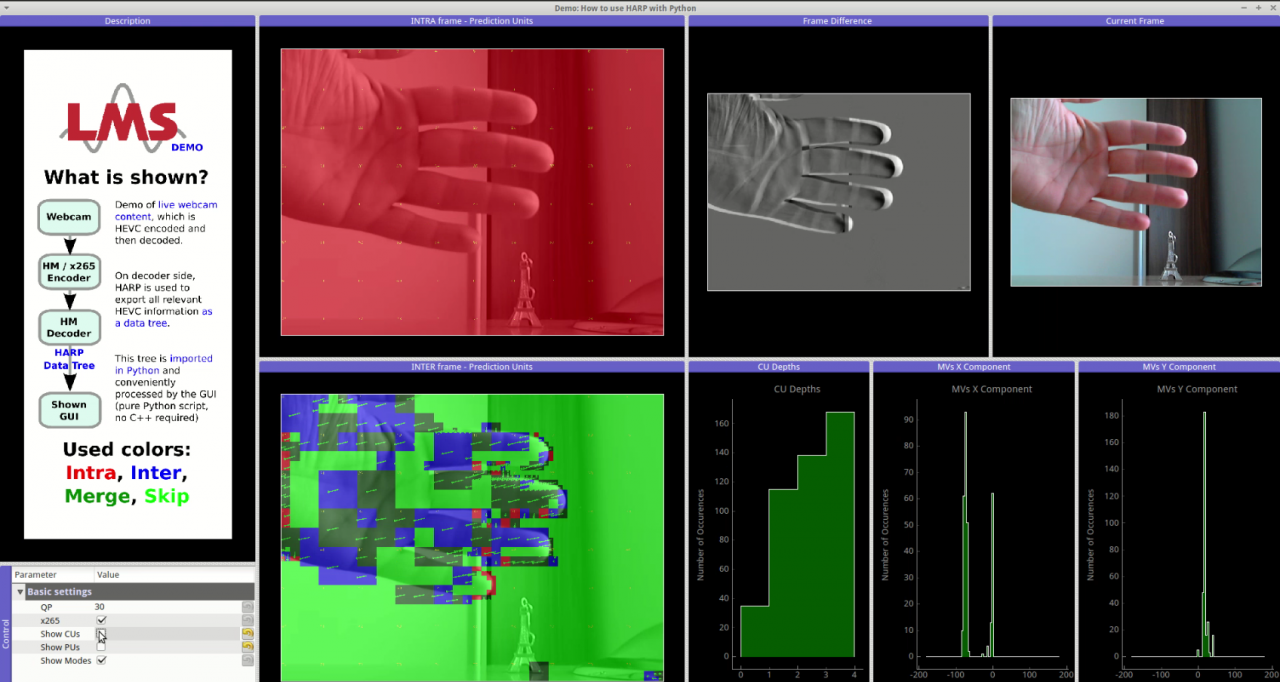HEVC Analyzer for Rapid Prototyping (HARP)
Welcome to the Home of the HARP Toolkit!
NEWS: HARP v2.0 is available! See this page for more information: https://lnt.tf.fau.de/harp/HARP_v2
HARP is an open source toolkit for rapid prototyping of new HEVC / H.265 video codec extensions. Our motivation for creating HARP lies in the simple idea that a well-chosen development environment allows to focus time and resources more on the design stage of new HEVC extensions and less on subsequent implementation and debugging tasks.
HARP might be interesting to you if you plan to analyze, adapt, or extend the C++ reference implementation of HEVC, the HEVC Test Model (HM). That's probably the case if
- you are a student or PhD student, planing to design new technology for making HEVC more efficient
- you are a member of an HEVC research group in industry or at university
- you are a big fan of open source and plan to accelerate parts of HM in order to contribute your code to the open source x265 project
- you are a big fan of Linux and happy to see another example of how highly-specialized development environments with lots of library dependencies can be setup in no time
- you are just interested in the best that current video coding technology has to offer and want to learn more about the HEVC standard
So what is it that HARP provides? While existing analyzers are restricted to decoder side and almost all are closed source only, HARP allows detailed analysis like encoder-side RDO behavior or decoder-side CU mode visualization inside the reference implementation of HEVC, HM-14.0. HARP is fully open source under the GPL and is freely adaptable to specific needs. The focus of HARP's design is to assist future research on new HEVC extensions by offering a complete development environment, consisting of useful libraries, essential build and visualization tools, Python toolboxes, and ready-to-use Eclipse IDE project files. We encourage interested developers to freely use and extend our toolkit and contribute interesting new code sections back to the HARP code base.
 |
 |
Important update: Starting with the ICIP2014 conference in Paris, HARP is now available in version 1.03: HARP_v1.03.tar.gz (Linux only). The paper is available here: HARP_ICIP2014_Paper.pdf. A quick overview of HARP and its capabilities (including its Python frontend) can be found here: HARP_ICIP2014_Handout.pdf. If you are interested in running the ICIP2014 Live Demo on your own laptop, just follow this tutorial: Tutorial - ICIP2014 Demo. So, give HARP a try and let us know what you think of it!
Please don't forget to cite HARP if you use it for your own publications (bibtex).
Contact: dominic[DOT]h[DOT]springer[AT]gmail.com

